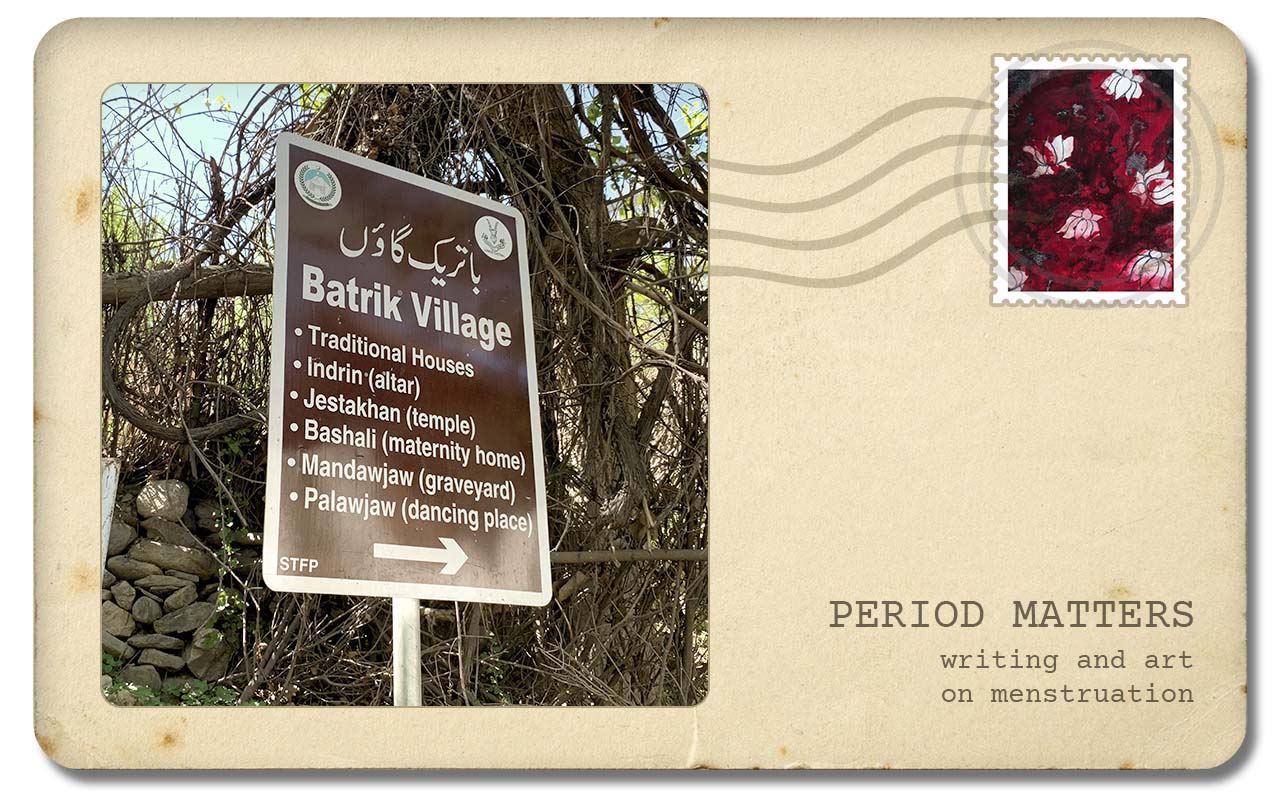In my essay on the menstruation experience of the women in the Kalasha community, I write about their goddess Dezalik. She is believed to have all her powers dedicated to looking after women’s welfare and health. During times of difficulty, for instance, during a difficult labour or pregnanacy, the Kalasha women throw walnuts at her wooden statue and pray for her intercession.
I saw these two examples of her statues in the Kalasha Museum.
The Kalasha community is small, with only 3000 members. During menstruation the women leave their homes and go and stay in Bashali, where they rest, sing songs, dance and relax with their friends. The community lives in a Chitral valley in the northern mountain areas of Pakistan. The Kalasha celebrate life and death and the funeral rites for men are accompanied by singing and dancing and a feast where grape wine is served. For deceased women and children the singing and dancing is excluded and fewer people attend the funeral. But for all, the body is laid in the middle of a bare room under a skylight and the community gathers around to celebrate the deceased’s life. Animals are also brought in the room to witness the occasion. The Kalasha feel very close to plants and animals and believe their own existence is similar.
Traditionally, the Kalasha would lay their dead in wooden boxes and leave them under a tree, believing that the dead were in a kind of deep, natural sleep and should not be disturbed. The practice was in keeping with how birds and animals died peacefully and were left to nature. The photos show the ‘grave’ boxes lying scattered in a grave yard. This ritual is no longer practised.
It was my good fortune that two young women health officers from Chitral, Rabia and Safina. They were out working in the Kalasha Valley collecting data and doing research and overheard me enquiring what a Bashali was from a guide. After I explained I was writing Period Matters, they helped me to gain access to a Bashali so I was able to understand the Kalasha culture and the see first hand the context of how they practice their menstruation rites.
I’ve been very lucky to meet good people on my journey who have helped bring all the different perspectives to the book.
